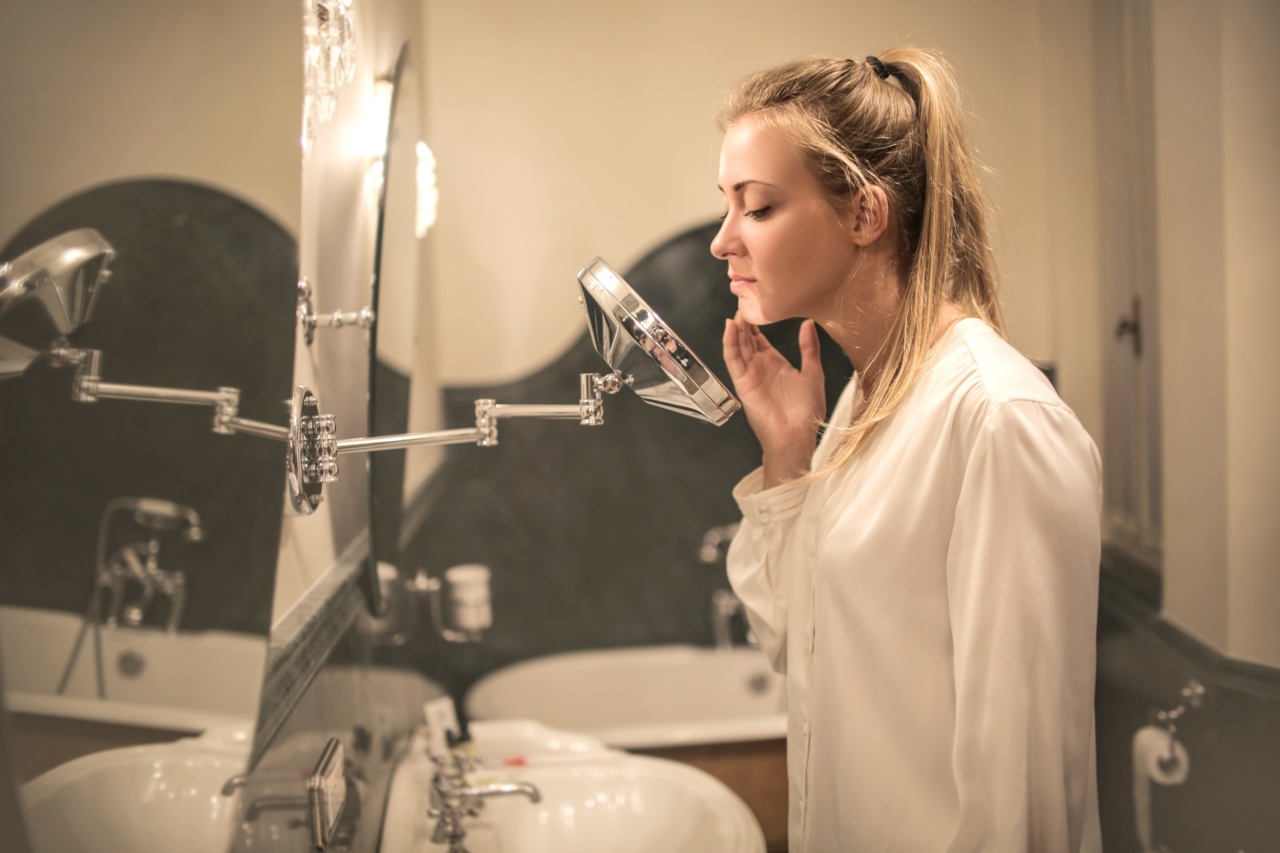Dealing with acne can be frustrating and overwhelming. It not only affects your physical appearance but can also impact your self-confidence.
While there are numerous skincare products available in the market, many individuals prefer natural remedies for treating acne due to their minimal side effects and long-term benefits. In this article, we will explore ten effective methods for clearing up acne naturally.
1. Tea Tree Oil
Tea tree oil is a popular natural remedy for acne. It has powerful antibacterial properties that can help reduce inflammation and kill acne-causing bacteria. Simply apply a small amount of tea tree oil to the affected areas using a cotton swab.
Make sure to dilute the oil with a carrier oil, such as jojoba oil or coconut oil, before applying it to your skin.
2. Apple Cider Vinegar
Apple cider vinegar has been used for centuries as an effective remedy for various skin conditions, including acne. It contains organic acids that have antimicrobial properties and can help balance the pH level of your skin.
Mix equal parts of apple cider vinegar and water and apply the mixture to your skin using a cotton ball. Leave it on for a few minutes before rinsing it off with water.
3. Honey
Honey is known for its moisturizing and antibacterial properties, making it an excellent natural remedy for acne. Apply a thin layer of raw honey to your face and leave it on for 10-15 minutes. Rinse it off with warm water and pat your skin dry.
Regular use of honey can help reduce acne inflammation and promote healing.
4. Aloe Vera
Aloe vera is a popular plant known for its healing properties. Its gel contains antioxidants and anti-inflammatory compounds that can soothe irritated skin and promote the healing of acne lesions.
Extract the gel from an aloe vera leaf and apply it to your face as a moisturizer. Leave it on overnight and rinse it off in the morning.
5. Witch Hazel
Witch hazel is a natural astringent that can help reduce acne inflammation and excess oil production. Apply witch hazel to your skin using a cotton ball and leave it on for a few minutes before rinsing it off.
Regular use of witch hazel can help tighten your pores and reduce the occurrence of acne breakouts.
6. Green Tea
Green tea is not only a refreshing beverage but also a great remedy for acne-prone skin. Its antioxidants help reduce inflammation and sebum production. Brew a cup of green tea, allow it to cool, and apply it to your skin using a cotton ball.
Alternatively, you can use green tea extract as a topical treatment.
7. Lemon Juice
Lemon juice is a natural exfoliant and contains citric acid, which can help unclog pores and reduce excess oil on the skin. Squeeze fresh lemon juice into a bowl and apply it to your skin using a cotton ball.
Leave it on for a few minutes before rinsing it off. Bear in mind that lemon juice can make your skin more sensitive to sunlight, so it’s essential to use sunscreen after application.
8. Turmeric
Turmeric is a vibrant yellow spice that has anti-inflammatory and antibacterial properties. It can help calm inflamed acne lesions and prevent new breakouts. Create a paste by mixing turmeric powder with water or honey and apply it to your face.
Leave it on for 10-15 minutes before rinsing it off with warm water.
9. Zinc Supplements
Zinc is an essential mineral that plays a vital role in maintaining healthy skin. It helps regulate oil production and supports the immune system, which can indirectly aid in acne prevention.
Taking zinc supplements orally or using a zinc-based cream can help reduce acne symptoms and promote clearer skin.
10. Proper Skincare Routine
Establishing a consistent skincare routine is crucial for keeping your skin clear and healthy. Cleanse your face twice a day using a gentle cleanser suitable for acne-prone skin.
Exfoliate your skin once or twice a week to remove dead skin cells and unclog pores. Use a non-comedogenic moisturizer to keep your skin hydrated without clogging your pores. Lastly, never forget to apply sunscreen before stepping out, as the sun’s rays can aggravate acne.
Conclusion
By incorporating these natural remedies into your skincare routine, you can effectively clear up acne and enjoy healthier skin.
However, remember that individual results may vary, and it’s essential to consult with a dermatologist if you have severe or persistent acne. Embrace a holistic approach to skincare, be patient, and stay consistent with your chosen natural remedies to achieve the desired results.































